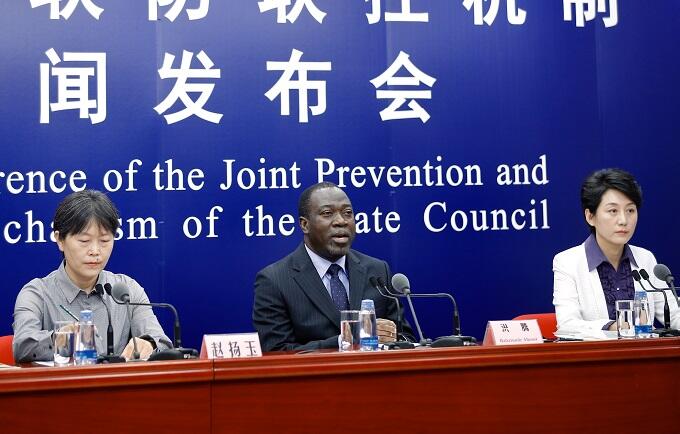Beijing, 11 July 2020
CHECK AGAINST DELIVERY
On behalf of the United Nations Population Fund, I would like to express my sincere appreciation to the National Health Commission for organizing the event and inviting UNFPA to participate in the event to commemorate the 2020 World Population Day.
The global theme of the WPD this year is “Putting the brakes on COVID-19: how to safeguard the health and rights of women and girls now?”
The COVID-19 crisis has taken a staggering toll on people, communities and economies everywhere. Women, who account for the largest share of the front-line health workers, for example, have been disproportionately exposed to the coronavirus. Sexual and reproductive health is a crucial public health issue that demands urgent and sustained attention and investment during health and humanitarian crises.
Supply chains around the world are being disrupted, impacting the availability of health commodities including contraceptives and heightening the risk of unintended pregnancies. As countries are on lockdown and health systems struggle to cope with the increased burden due to COVID 19, sexual and reproductive health services are being sidelined and gender-based violence is on the rise.
Recent UNFPA research highlighted that if the lockdown continues for 6 months with major disruptions to health services, 47 million women in low- and middle-income countries may not be able to access modern contraceptives, resulting in 7 million unintended pregnancies. 31 million additional cases of gender-based violence can also be expected. UNFPA projects that COVID-19 will reduce by at least one third global progress towards ending preventable maternal deaths, unmet need for family planning and gender-based violence and harmful practices against women and girls in this decade.
China has made great efforts in containing COVID-19 outbreak and is watchful of its resurgence. UNFPA provided assistance to the Chinese government in the fight against the pandemic in Hubei province including providing diapers and sanitary pads for ensuring dignity of women and female health workers. UNFPA also worked with the National Center for Women and Children's Health to develop SRH communication materials in the context of the COVID-19. UNFPA Headquarters, in collaboration with the National Health Commission, successfully organized two webinars on sharing China’s experiences in providing sexual and reproductive health, and newborn care and services in the areas affected by the COVID-19 pandemic, which were well received by more than 400 professional participants around the world.
UNFPA calls on governments and partners to prioritize the sexual and reproductive health of women and girls and respond urgently to their needs, especially in humanitarian situations.
In the first year of the Decade of Action to achieve the Sustainable Development Goals by 2030, we must not allow the coronavirus to further worsen inequalities, including gender inequality. Assisting people affected by humanitarian crises is not only the right thing to do; it is the smart thing to do. Failure to respond may result in countless lives lost and lead to a future resurgence of COVID-19 in fragile and conflict-affected countries.
Pregnancy does not stop during a pandemic. Neither does childbirth. And neither do human rights. On World Population Day, it is time to reaffirm and act on our collective resolve to secure sexual and reproductive health and rights for all.
Thank you for your attention.


